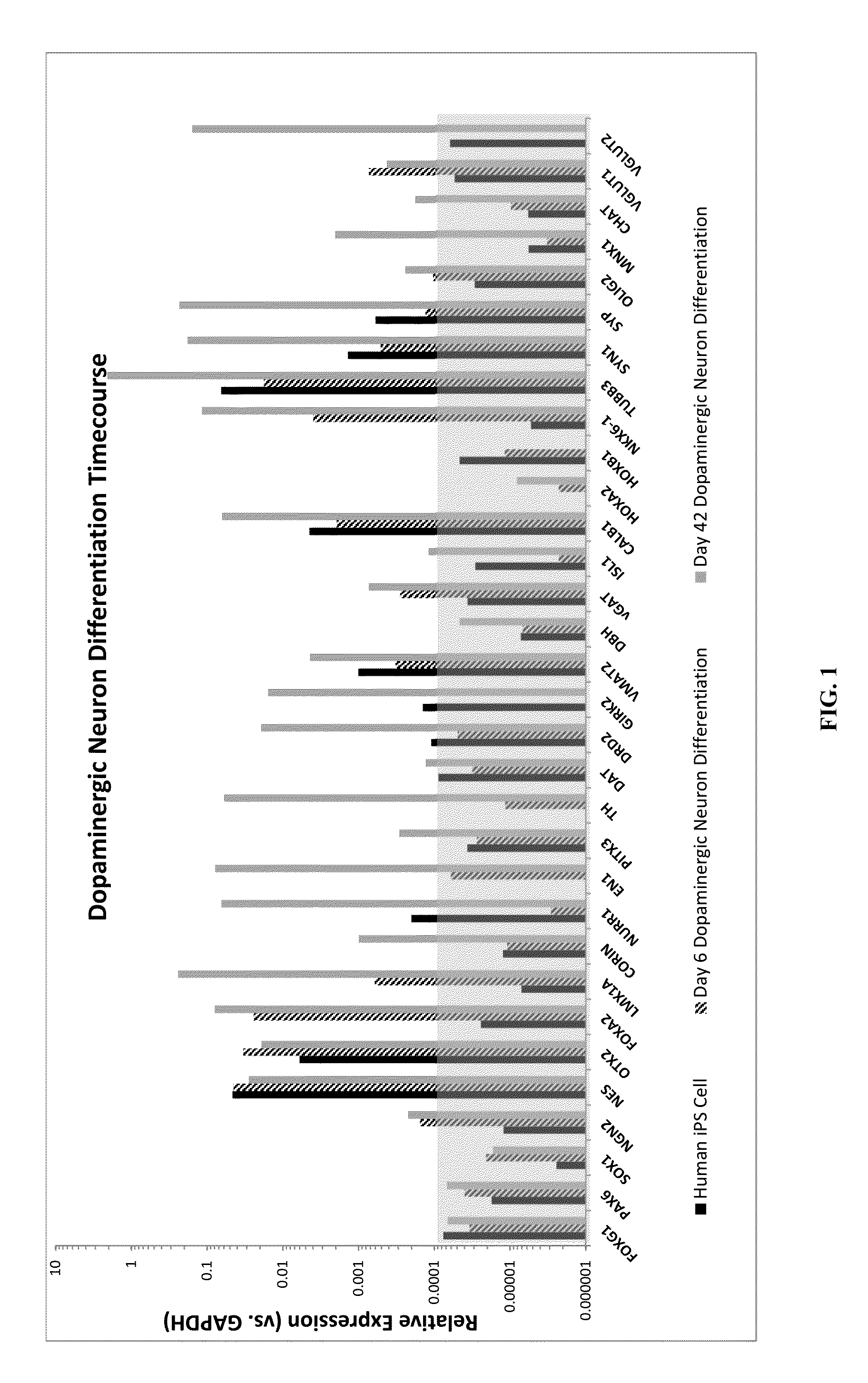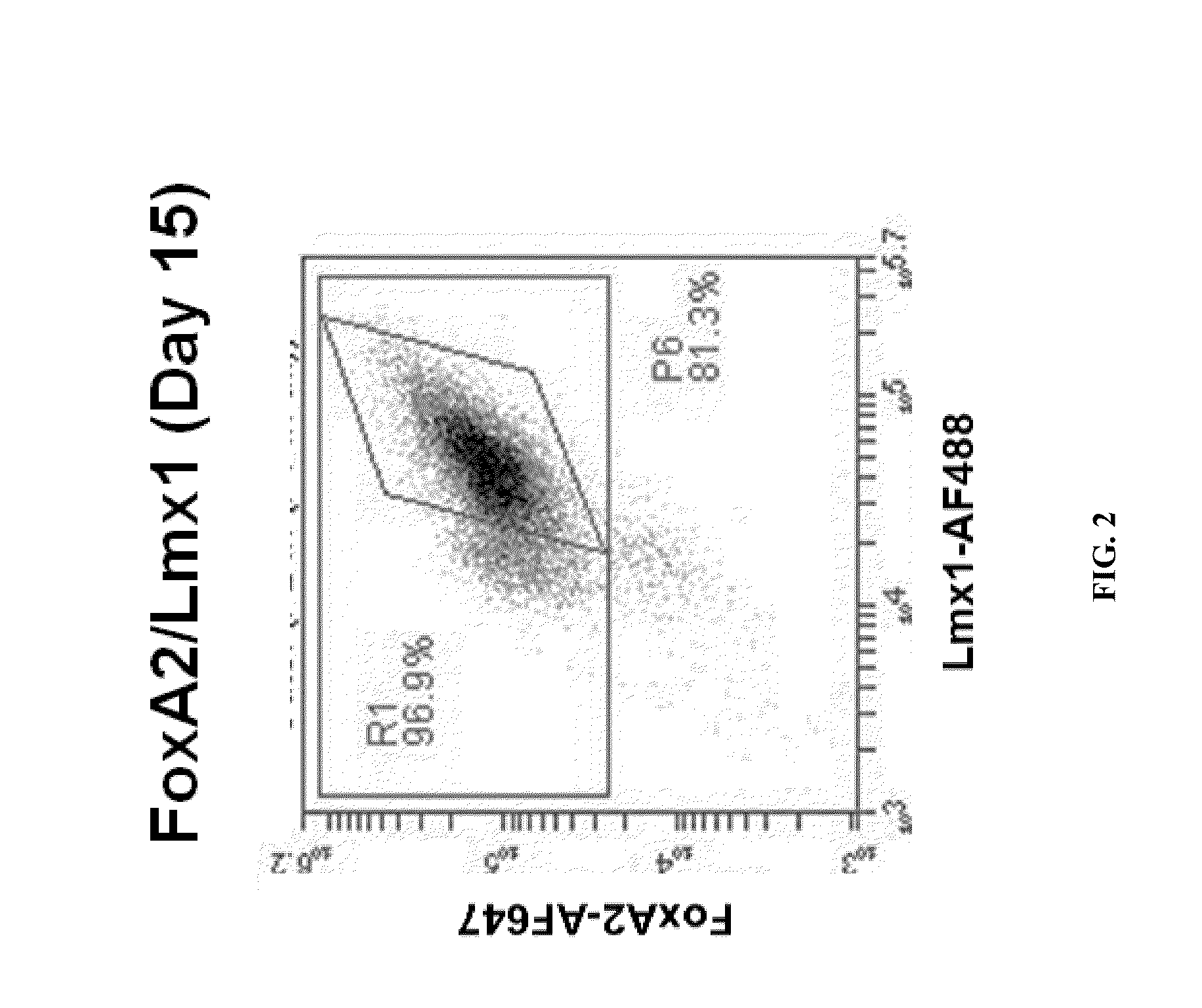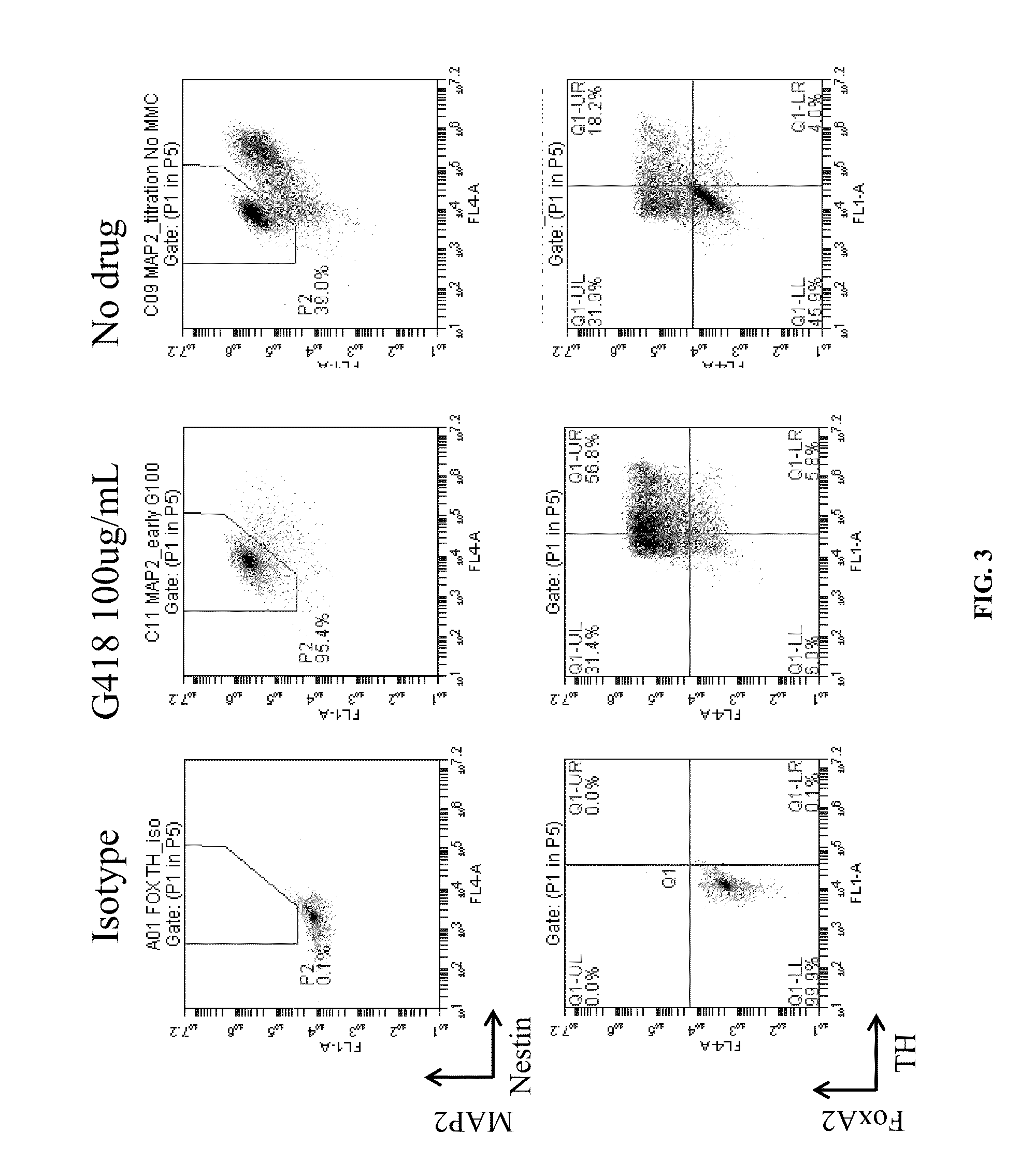Production of midbrain dopaminergic neurons and methods for the use thereof
a dopaminergic and midbrain technology, applied in the field of molecular and cellular biology, can solve the problems of poor in vivo engraftment of cell populations and display markers, and achieve the effect of assessing the viability of cells
- Summary
- Abstract
- Description
- Claims
- Application Information
AI Technical Summary
Benefits of technology
Problems solved by technology
Method used
Image
Examples
example 1
Midbrain DA Production from Pluripotent Cells
Cell Line Engineering:
[0163]A human induced pluripotent stem (iPS) cell line was engineered with a construct encoding a neomycin resistance gene driven by the human MAP2 promoter and a puromycin resistance gene driven by the PGK promoter. The construct was inserted into the AAVS1 site using Zinc Finger nuclease-mediated homologous recombination. Following puromycin selection, the clone MAP2 Neo #2 was selected and propagated on Matrigel using dispase splitting and mTeSR1 medium. The cell line was transitioned to EDTA splitting and Essential 8 medium prior to freezing the master cell bank.
DA Progenitor Induction and Expansion:
[0164]On Day (−2), the MAP2 Neo #2 iPS cells were split using TrypLE dissociation enzyme (7 min) and plated onto Matrigel at 3.3×104 cells / cm2 in Essential 8 medium containing 2.5 μM blebbistatin (37° C., 5% CO2). The cells were fed with Essential 8 medium on Day (−1) and Day 0.
[0165]On Day 1 of differentiation, neura...
example 2
Midbrain DA Production from Pluripotent Cells, No FGF8 / Early Cryopreservation Protocol Variation
DA Progenitor Induction and Expansion:
[0176]On Day (−2), the MAP2 Neo #2 iPS cell line was split using TrypLE dissociation enzyme (7 min) and plated onto Matrigel at 3.3×104 cells / cm2 in Essential 8 medium containing 2.5 μM blebbistatin (37° C., 5% CO2). The cells were fed with Essential 8 medium on Day (−1) and Day 0.
[0177]On Day 1 of differentiation, neural induction (via dual-SMAD inhibition, with a BMP-and TGFβ-signaling inhibitors), floor plate specification (via Sonic Hedgehog signaling), and midbrain DA neuron specification (via WNT signaling) were simultaneously induced. Day 1 medium was composed of DMEM / F12 with B27 Supplement and containing a cocktail of small molecule inhibitors and activators (“Induction Cocktail”): 200 nM LDN-193189, 10 μM SB431542, 2 μM purmorphamine, 100 ng / mL Shh C25II and 1.25 μM CHIR 99021. On Day 2 the cells were fed with the same medium, with the addit...
PUM
| Property | Measurement | Unit |
|---|---|---|
| Fraction | aaaaa | aaaaa |
| Fraction | aaaaa | aaaaa |
| Fraction | aaaaa | aaaaa |
Abstract
Description
Claims
Application Information
 Login to View More
Login to View More - R&D
- Intellectual Property
- Life Sciences
- Materials
- Tech Scout
- Unparalleled Data Quality
- Higher Quality Content
- 60% Fewer Hallucinations
Browse by: Latest US Patents, China's latest patents, Technical Efficacy Thesaurus, Application Domain, Technology Topic, Popular Technical Reports.
© 2025 PatSnap. All rights reserved.Legal|Privacy policy|Modern Slavery Act Transparency Statement|Sitemap|About US| Contact US: help@patsnap.com



